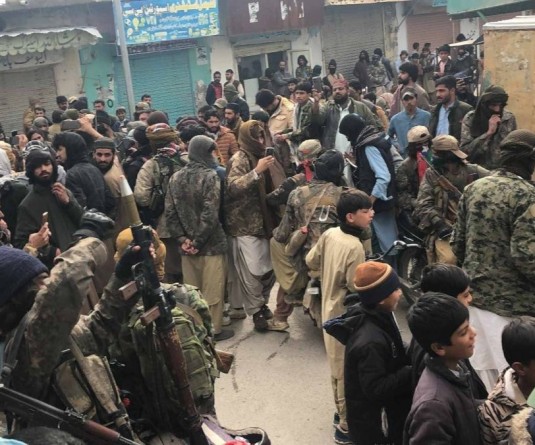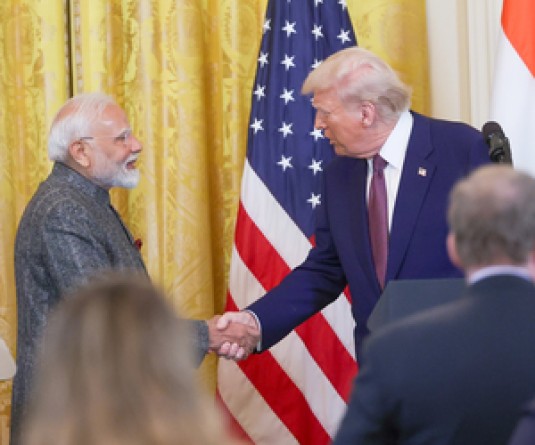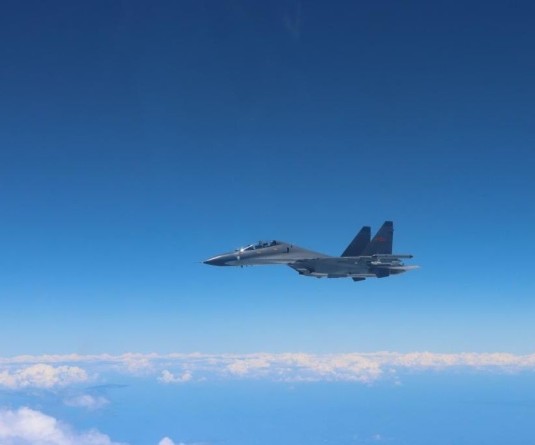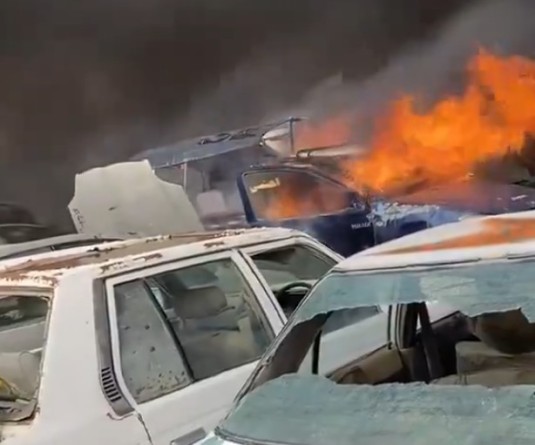IANS Photo
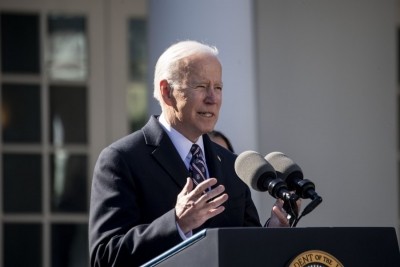
Washington, October 16 (IANS) US President Joe Biden has warned Israel against occupying Gaza, saying, "that would be a big mistake", as the Israel Defense Forces (IDF) began lining up military tanks close to Gaza in preparation for a massive ground assault on the strip in a desperate effort to free the hostages and eliminate Hamas.
On Sunday, Biden told the CBS News' "60 Minutes" interviewer that he thought an Israeli occupation of Gaza at this point would be "a big mistake" and has sought to draw a distinction between Hamas and ordinary Palestinians.
"Hamas and the extreme elements of Hamas don't represent all the Palestinian people," Biden said referring to the militant ambush on October 7 on Israel that left over 1,400 civilians and soldiers dead.
The US State Department announced on Sunday it had designated David Satterfield, a seasoned diplomat, as a special envoy for "Middle East humanitarian issues" tasking him with the mandate to "facilitate the provision of life-saving assistance to the most vulnerable people and promote the safety of civilians".
Biden administration officials said they were doing their "best" to mitigate the humanitarian consequences of an expected Israeli ground invasion of the Gaza Strip, even as the Palestinian death toll from airstrikes continued to rise and aid earmarked for the enclave remained stuck in Egypt, media reports said.
National security adviser Jake Sullivan told CNN that people in Gaza deserved "access to water and medicine and food. And we are working actively to ensure that happens".
Israel had agreed to turn on "the water pipe", he said, but only to southern Gaza.
The US administrations sudden effort to help Palestinians in Gaza hit by continuous bombardment of airstrikes marks a great shift in posture from its earlier blanket support to Israel's military operations in advance of a ground invasion.
Human rights groups say such an invasion will result in large-scale civilian casualties and there was no sign that tensions would ease as Israeli Prime Minister Benjamin Netanyahu declared Israeli soldiers were "ready to take action at any time in order to defeat the bloodthirsty monsters who have risen against us to destroy us".
The Palestinian Health Ministry has said that eight days of Israeli strikes in Gaza had killed 2,670 people and wounded 9,600. Meanwhile, the blockade has prevented food, fuel, electricity and water to the enclave's embattled over 2 million residents. An Israeli evacuation warning urging 1.1 million residents of northern Gaza to move south has exacerbated the crisis, aid workers said and the UN Secretary General Antonio Gutteres had warned it would lead to a humanitarian crisis.
US Secretary of State Antony Blinken reached Egypt on Sunday with relief supplies stuck at an airport in Egypt's Sinai Peninsula, less than an hour from the war torn Gaza. Some of the aid channelled from Turkey, as also the United Nations - have been stranded on Egypt's side of the border for days.
The relief supplies remain stuck in Egypt because they run the risk of running straight into Israeli air strikes on the way and Israeli guaranteeing no safe passage. A diplomatic official said Israel was being asked to allow the flow of relief trucks after inspecting them on the border to Gaza.
A spokesman for Netanyahu declined to comment on this development.
"We are calling on all parties to open the humanitarian corridor - to have a humanitarian pause in the conflict and to open the border, to allow supplies to go into children who need them right now," Jeremy Hopkins, Egypt representative for UNICEF, the United Nations’ children’s agency, said in an interview Sunday.
Planeloads of aid from the UN had arrived on the Egyptian side of the border with Gaza, he said, and included drinking water, hygiene kits and portable toilets.
"We don't know when it's coming. It needed to come eight days ago," said Juliette Touma, a spokeswoman for UNRWA, the UN agency for Palestinian refugees.
UNRWA staffers now relocated in southern Gaza, were rationing water, she said. Half a million Palestinians had been sheltered at the UN relief camps under desperate conditions.


